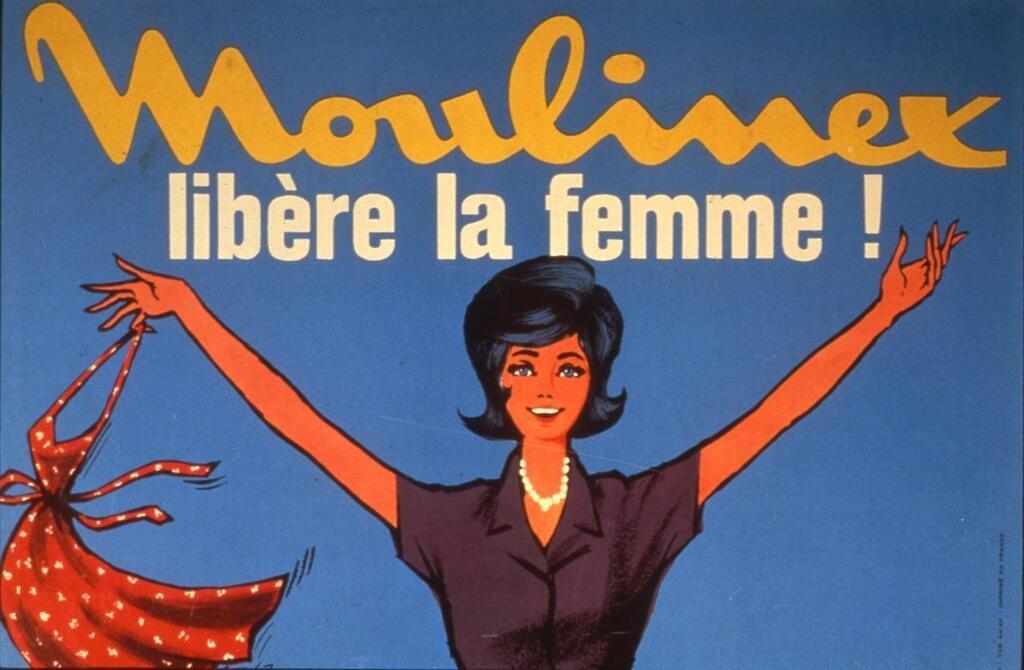Where Does The Phrase "A Woman's Place Is In The Kitchen" Come From? Let's Break It Down
Have you ever heard the phrase "a woman's place is in the kitchen"? Sounds like something from a black-and-white movie, right? But guess what—it’s still lingering in our modern conversations. This saying has been around for ages, and it’s time we dig into what it really means. So buckle up, because we're about to take a deep dive into the history, the impact, and why it matters today.
Let’s get real here. Phrases like this aren’t just harmless words—they carry a lot of weight. They reflect societal norms, expectations, and even discrimination. But don’t worry, we’re not just going to sit here and complain. We’re going to explore where this idea came from, how it shaped the world, and why it’s important to challenge these outdated beliefs.
This isn’t just about women or kitchens—it’s about understanding how language shapes our reality. Whether you’re a history buff, a feminist, or just someone curious about how we got here, this article is for you. So grab a cup of coffee, or maybe a glass of wine, and let’s unpack this together.
The Origins of the Phrase: A Look Back
When we say "a woman's place is in the kitchen," we’re tapping into centuries of cultural conditioning. The phrase itself might sound old-fashioned, but its roots go way back. Historically, women were often confined to domestic roles, and the kitchen became a symbol of their duties. But why? And who decided this?
From Ancient Times to the Industrial Revolution
In ancient societies, gender roles were pretty rigid. Women were expected to handle household chores, including cooking, cleaning, and raising children. The kitchen was the epicenter of their world. Fast forward to the Industrial Revolution, and things didn’t change much. As men entered factories and offices, women were still largely stuck at home.
- Women were seen as caretakers, not breadwinners.
- Domestic work was undervalued and unpaid.
- Social norms reinforced the idea that women belonged in the home.
How Religion and Culture Played a Role
Religious texts and cultural traditions often reinforced these roles. Many societies taught that a woman’s primary responsibility was to her family, and the kitchen was her domain. This wasn’t just about cooking—it was about control. By keeping women in the kitchen, society limited their opportunities for education, career advancement, and personal growth.
The Impact of This Phrase on Women’s Lives
Let’s not sugarcoat it: the idea that a woman belongs in the kitchen has had serious consequences. It’s not just a harmless saying—it’s a reflection of systemic inequality. But what does this mean for women today?
Limited Career Opportunities
When women are told their place is in the kitchen, it sends a clear message: your value lies in domestic work. This mindset has kept countless women out of the workforce, or pushed them into low-paying jobs. Even today, women are underrepresented in many industries, from tech to politics.
Emotional and Psychological Effects
For many women, hearing this phrase can be hurtful and demotivating. It reinforces the idea that they’re not capable of achieving more. This can lead to feelings of inadequacy, self-doubt, and even depression. It’s time to break free from these limiting beliefs and embrace a more inclusive vision of what women can be.
Challenging the Norm: Women Who Defied the Kitchen
Throughout history, there have been amazing women who refused to accept the status quo. They broke barriers, shattered stereotypes, and showed the world that women belong everywhere—not just in the kitchen. Here are a few inspiring examples:
Marie Curie: A Pioneer in Science
Marie Curie didn’t spend her days stirring pots and pans. She was a trailblazing scientist who discovered radioactivity and won not one, but two Nobel Prizes. Her work changed the world, proving that women can excel in any field they choose.
Rosa Parks: A Champion for Civil Rights
Rosa Parks wasn’t content to stay in the kitchen while others fought for equality. She stood up (or rather, stayed seated) against injustice, becoming a symbol of the civil rights movement. Her courage inspired millions to demand change.
Malala Yousafzai: A Voice for Education
Malala didn’t let anyone tell her that her place was in the kitchen. She fought for girls’ education, even when it put her life in danger. Today, she’s a global icon and a Nobel Peace Prize winner, proving that women can achieve greatness no matter what.
Modern-Day Misconceptions About Women and Kitchens
Even in 2023, the idea that women belong in the kitchen still lingers. It might not be said outright, but it’s there in subtle ways. From ads that show women cooking to jokes about “mom guilt,” these messages reinforce outdated stereotypes. Let’s break them down.
Advertising and Media
Think about the last time you saw an ad for kitchen appliances. Chances are, it featured a woman smiling while she cooked. This isn’t just a coincidence—it’s a reflection of deep-seated biases. But the good news is, more and more brands are starting to challenge these norms by showcasing diverse representations of women.
Social Media and Online Discourse
Social media can be a double-edged sword. On one hand, it gives women a platform to share their stories and challenge stereotypes. On the other hand, it can also perpetuate harmful ideas. Comments like “get back in the kitchen” might seem funny, but they’re part of a larger problem.
Why This Matters: The Bigger Picture
When we talk about women and kitchens, we’re really talking about gender equality. It’s about recognizing that women have the same rights, opportunities, and potential as men. It’s about creating a world where everyone can thrive, regardless of their gender.
The Role of Men in Changing the Narrative
Men have a crucial role to play in dismantling these outdated ideas. By supporting women in all areas of life, they can help create a more equitable society. This means sharing domestic responsibilities, advocating for equal pay, and challenging harmful stereotypes.
Education and Awareness
Education is key to breaking down barriers. By teaching children about gender equality from a young age, we can create a new generation that values diversity and inclusion. Schools, parents, and communities all have a part to play in this process.
The Future of Women Beyond the Kitchen
So where do we go from here? The future is bright, but it’s up to all of us to make it happen. Here are a few ways we can move forward:
Supporting Women in Leadership
Women need more opportunities to lead in all areas of life. Whether it’s in business, politics, or the arts, we need to create pathways for women to succeed. This means addressing systemic barriers, providing mentorship, and celebrating their achievements.
Promoting Work-Life Balance
Both men and women deserve the flexibility to balance work and family life. By advocating for policies like paid parental leave and flexible work arrangements, we can create a more supportive environment for everyone.
Conclusion: It’s Time to Redefine the Kitchen
Let’s face it: the kitchen isn’t just for women anymore. It’s a place for everyone to cook, create, and connect. By challenging outdated ideas like "a woman’s place is in the kitchen," we can build a more inclusive and equitable world.
So what can you do? Start by questioning the language you use. Challenge stereotypes when you see them. Support women in all areas of life. And most importantly, keep the conversation going. Together, we can create a future where everyone has a seat at the table.
Don’t forget to share this article with your friends and family. Let’s spread the word and make a difference. Because when we lift each other up, we all win.
Table of Contents
- The Origins of the Phrase: A Look Back
- The Impact of This Phrase on Women’s Lives
- Challenging the Norm: Women Who Defied the Kitchen
- Modern-Day Misconceptions About Women and Kitchens
- Why This Matters: The Bigger Picture
- The Future of Women Beyond the Kitchen
- Conclusion: It’s Time to Redefine the Kitchen
Remember, the fight for equality isn’t over—but with every step forward, we’re getting closer to a world where everyone belongs.

Comment rendre ma cuisine plus fonctionnelle ? Magazine Avantages

La place d'une femme est... Blagues et les meilleures images drôles!

SaintLô. Moulinex, témoin de l’évolution de l’image de la femme Caen